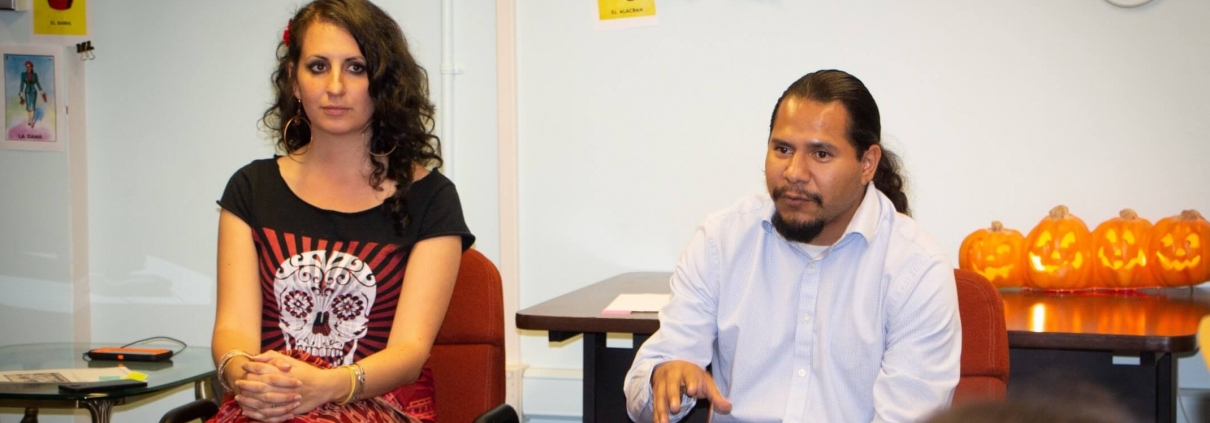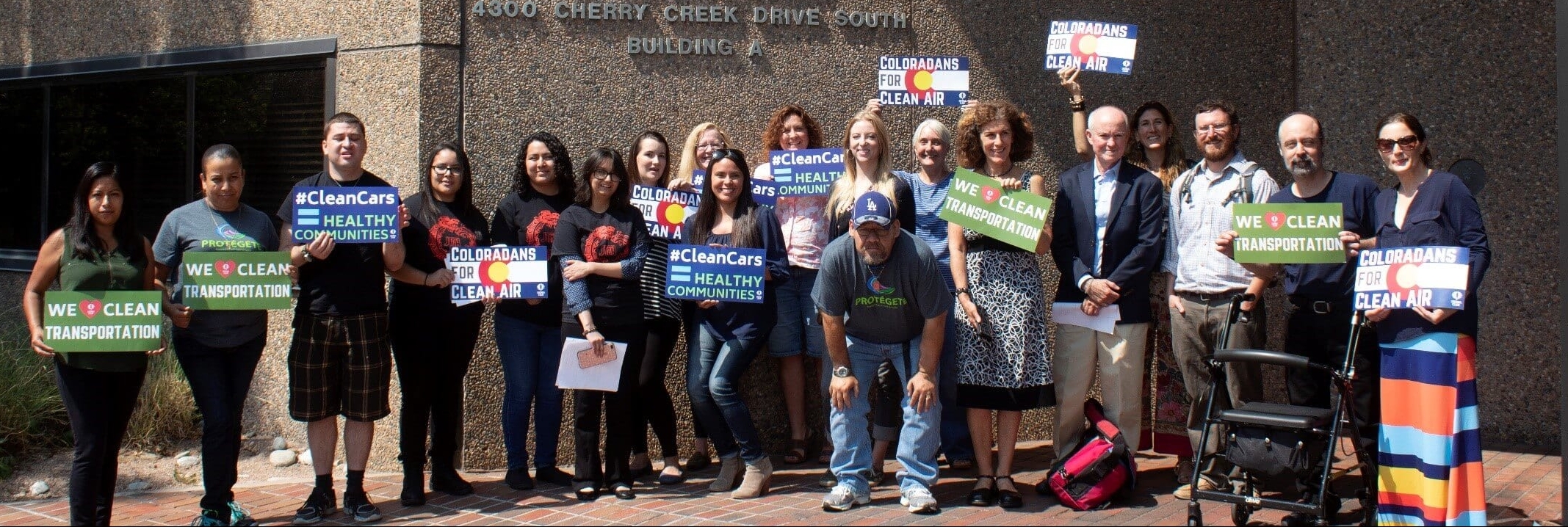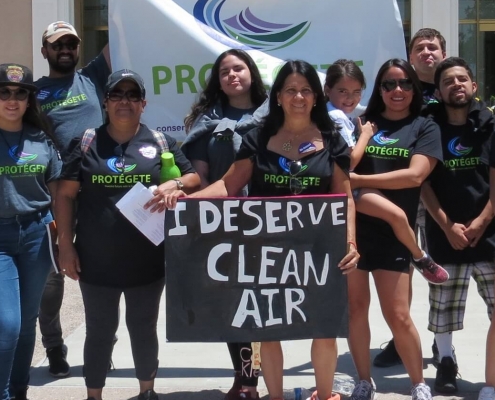How Colorado is ready to lead on the Environment
Drove 1,800 megawatts of clean energy. Cut pollution from cars. Organized thousands of Coloradans to stand up to the Trump administration. Won 53 elections, electing more women and people of color than ever before in Colorado. When we pause and take a look back, it’s clear that our 2018 was pretty eventful.
Building a movement requires many small successes. And this year — with the support of our many dedicated volunteers, donors, and activists — we accomplished a lot to protect Colorado’s environment.
First, we put more time, money, and effort into electing pro-conservation leaders than ever before — and it paid off! We played a part in getting Jared Polis elected as governor and in electing pro-conservation majorities in the Colorado legislature!
But election victories aren’t the only thing we accomplished this year.
Energy and Climate

- We helped bring more clean, renewable energy to Colorado through Xcel Energy’s Colorado Energy Plan. This will save an estimated $213 million for energy consumers, replacing two coal-fired power plants using renewable energy, existing (but no new) natural gas resources, and doubling the amount of battery storage that is currently under contract in the entire country. We sent nearly 10,000 public comments (a new record) to the Public Utilities Commission to make this plan a reality.
- We worked to pass a bill that supports rural communities impacted by economic downturn, like a big industry leaving. The “REACT” bill provides much-needed coordination and resources for state agencies to assist rural communities. It does this by designating a specific state agency, the Department of Local Affairs, to coordinate economic assistance.
Transportation

- We made big moves for cleaning up pollution from cars in Colorado. In November, Colorado became the first interior state to pass Low Emission Vehicle standards for cars and trucks, which will reduce pollution from tailpipes, help Coloradans breathe easier, and save money for families at the pump. We lauded Governor Hickenlooper when he kicked off the process with an executive order in June, and we brought input from more than 7,600 Coloradans to the agency in charge.
- We played a part in passing a bill to increase funding for transportation, a need that has grown as Colorado’s population has boomed. A true compromise, this transportation funding bill includes flexible, statewide funding that invests in transit, bike, and pedestrian options as well as highways and roads. SB 001 provides funding for all parts of the state to decrease congestion, promote equity, and reduce air pollution.
Wilderness and Public Lands
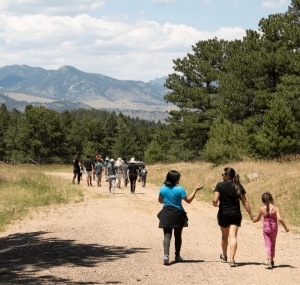
- We partnered with U.S. Senator Michael Bennet and Representative Jared Polis to introduce a bill in both chambers of Congress to permanently protect 96,000 acres in the White River National Forest, including Camp Hale as the first-ever National Historic Landscape. The Continental Divide Recreation, Wilderness, and Camp Hale Act will protect the natural beauty, outdoor recreation, historic resources, and wildlife habitat in the nation’s busiest national forest.
- We supported a bill to reauthorize Colorado’s lottery to continue funding outdoor recreation and land conservation. Through this program, Great Outdoors Colorado has returned more than $1.1 billion to the people of Colorado through projects like community parks and trails in all 64 of Colorado’s counties.
- We mobilized thousands of Coloradans to speak up to the Trump administration, sending in comments on proposed changes to sage grouse plans, getting local elected officials on board to stop drilling near the Great Sand Dunes, and recruiting 103 businesses to send a letter to Congress to protect the Land and Water Conservation Fund.
Water
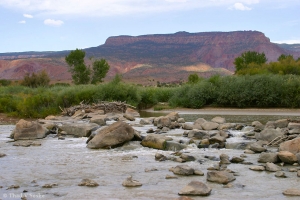
- We worked with our legislative champions to pass three bills that allow reused water to be used for flushing toilets, growing hemp and marijuana, and cultivating edible crops. Reused water is recycled water that has been treated so it is clean enough to use again. These bills will save water for Colorado.
- We won a lawsuit to keep the Dolores River flowing. There is now water that is legally allotted to restore stream flows for the fish and wildlife that depend on it.
Communities
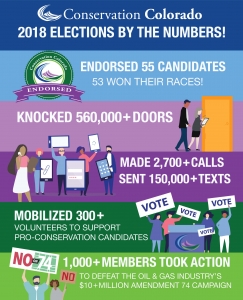
- Conservation Colorado Education Fund and Protégete registered 10,360 new voters in Denver and Pueblo counties—75 percent of whom identify as people of color—to help increase voter participation in Colorado.
- We graduated 44 Promotores, or individuals from Latino communities who committed to learning how to organize and lead their community toward local and statewide solutions through civic engagement. This included our first-ever youth Promotores, who are local high school and college students going through our program.
- We helped defeat Amendment 74, a ballot measure supported by out-of-state corporate interests who wanted to change the character of Colorado neighborhoods and our rural landscapes by giving developers loopholes to build anything they like, anywhere they like.
The Fight Continues
Our country is seeing a rare convergence of political climate, public concern, and capacity to make meaningful changes in the next few years — and those changes will be led by the states. We’re taking on some of our biggest campaigns ever to pass bold policies that will make Colorado a leader for the nation.
We’ve come up with a vision for the future that serves as a clear call for our leaders to make meaningful policies in 2019 and beyond to protect Colorado’s environment. It includes:
- Putting a limit on carbon pollution and advancing clean energy innovation
- Electrifying and cleaning up our transportation sector
- Safeguarding communities from oil and gas development
- Keeping water in our rivers and ensuring our drinking water healthy
- Protecting public lands and wilderness for all Coloradans
With your help, we can continue to grow our movement and make Colorado’s future one that we’re proud to leave as our legacy. Donate before the end of the year to support our vision for the future and become a part of the fight!

 “I want to [see] more respect for the environment and the communities that are living in that environment. People are being taken advantage of. We have to try to change. Going out and canvassing and talking to politicians, that’s a solution.”
“I want to [see] more respect for the environment and the communities that are living in that environment. People are being taken advantage of. We have to try to change. Going out and canvassing and talking to politicians, that’s a solution.”